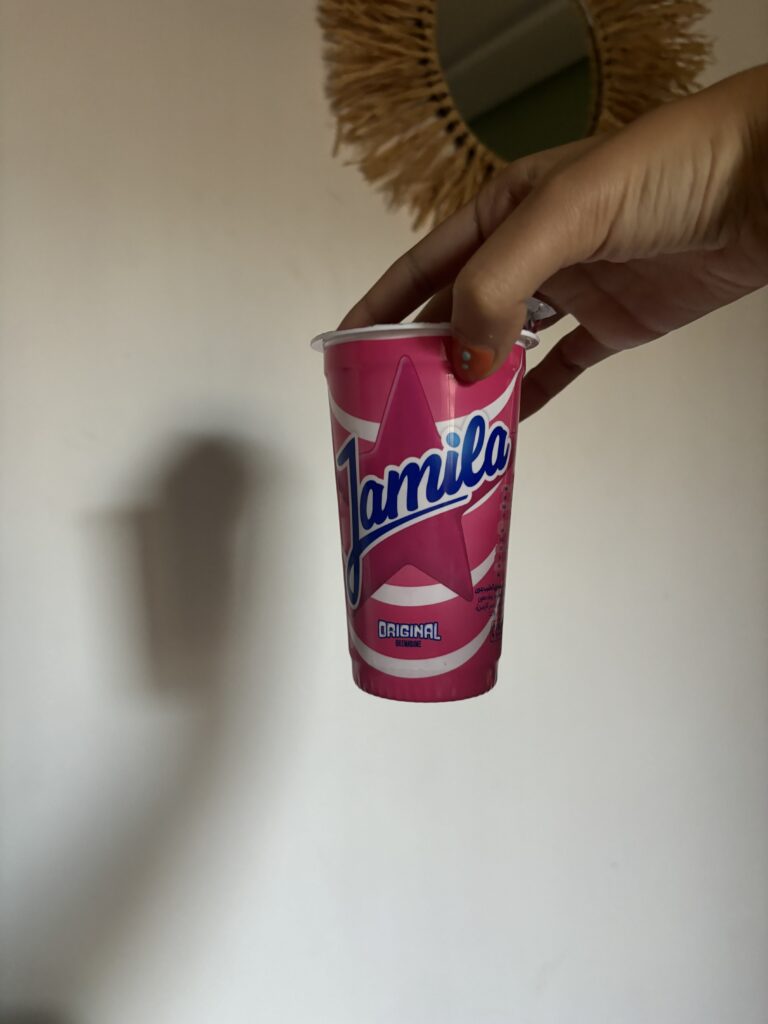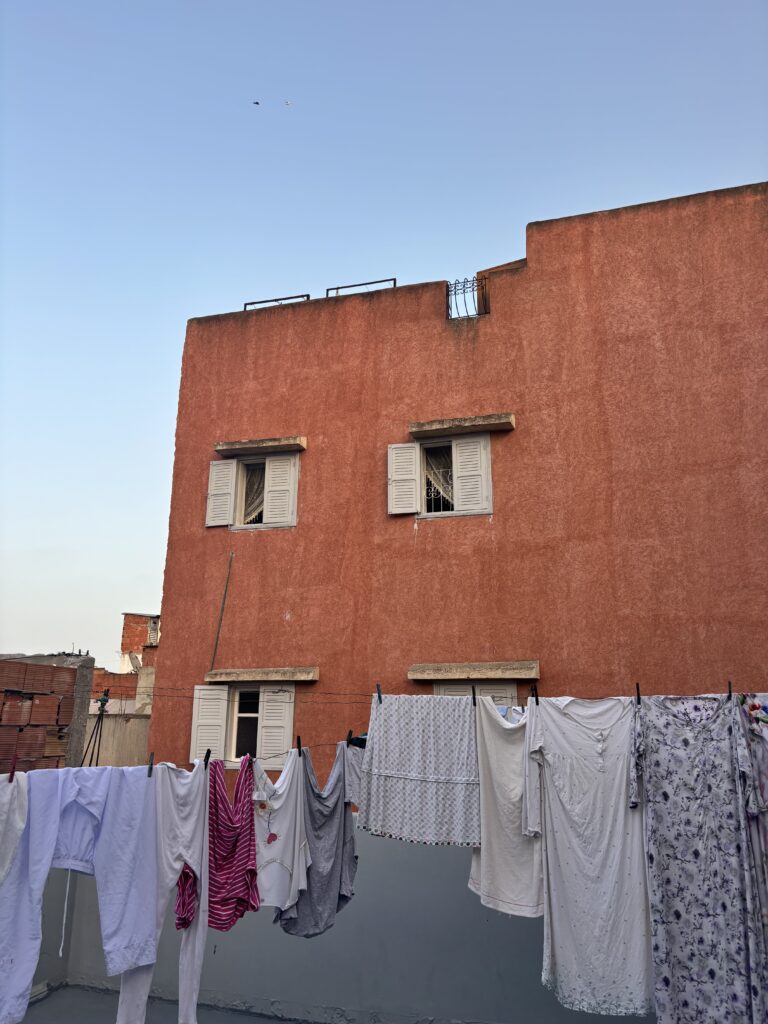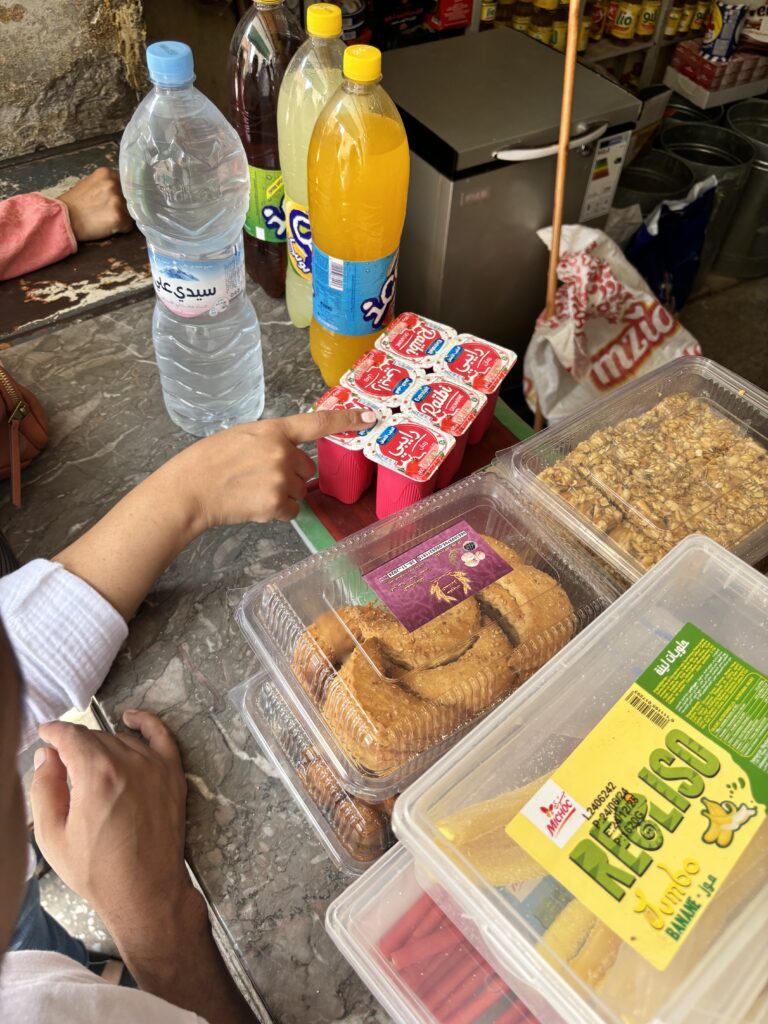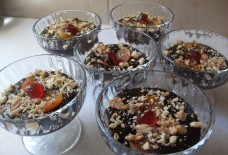Moroccan Childhood Nostalgia: Summers in the Bled

By: Nissrine Bedda / Arab America Contributing Writer
Nostalgia, as Moroccan-Americans know it to be, opens up profound emotions when living far away from the Bled (“homeland” in Darija). Whether it’s a sudden smell you get on the streets, or listening to the iconic 2M (Moroccan channel) “tum tum ta da” sound during Ramadan, or the hustle and bustle inside a souk; the feeling of nostalgia connects us to our roots at any place, any time. While the Moroccan diaspora spend their daily lives around the world—mainly the U.S., Europe, or Canada—summers back home allow us to disconnect and reconnect with our loved ones, while creating some sweet memories along the way.
There’s something about the simplicity of life back home that allows the Moroccan diaspora to take a step back. While our past generations may have left their countries for various reasons, there’s something about the Gen Z diaspora that has romanticized simplicity back home, making our parents change their outlook on their homeland. The admiration for our country doesn’t come as a shock as El Maghreb is made up of stories, unique destinations, enriching cuisine, and hospitality making our summers unforgettable. It’s by no surprise that Morocco continues to stay at the top of bucket lists for foreigners, and even its own diaspora. With 67 cities covering the nation, it’s diverse weather and traditions makes Interrail traveling a core memory. Whether it was spending a weekend in Marrakech or surfing in Taghazout, Morocco’s diverse agricultural landscape opens up different vibes that give Moroccans the luxury of choice.
Putting travel aside, family memories, hanout adventures (“corner store” in Darija), and nights up on the sta7 (“rooftop” in Darija) with cousins, are all common core memories we Moroccan children cherish. A sense of nostalgia sparks up on us here and there when we hear the words “Raibi Jamila” or “Merendina”, or the common rivalry “Hawaii or Poms?”. Let’s break it down:
Raibi Jamila

Raibi Jamila, the popular hanout purchase! Raibi is a pomegranate yogurt drink that comes in varying sizes from a small, pink, plastic box of yogurt to a carton, the splendid flavor of Raibi Jamila brings a Moroccan child back to their childhood in a single sip. While providing just the right ratio of sweetness, the old school, classic packaging remains the same. Over the years, it has grown to become a household name, cherished by people of all ages.
Nights up on the Sta7

Oh the sta7. The sta7 can be translated as the rooftop which is likely available at any grandparents home. While typical Moroccan homes are constructed of two floors, the sta7 is an open range of space that allows for grilling, catching the sunset, taking a break, drying your clothes in open air, etc. For Maghreb children, the sta7 is the best space to grab a couple of mattresses, blankets, pillows, and snacks, and sleeping up on the sta7 with all your cousins to enjoy a slumber party. Typically, these nights are full of laughter, staying up until sunrise, watching a film, and catching up with your favorite cousins.
“Hawaii or Poms?”

The preference between two sugary, carbonated drinks remains the nostalgic controversy everyone remembers when the two drinks come out during dinner time in a Moroccan household. Whether its between cousins or grandmothers asking you your preference in hopes that you will choose their ultimate favorite, these drinks remain unforgettable in Moroccan culture. Hawaii, a tropical fruit, orange fizzy drink (a personal favorite), not for nothing has this soft drink entered the hearts of all Moroccans, even if they live in the Netherlands or elsewhere. Poms, like biting into a crisp apple is another classic carbonated drink. Whichever is your take on preference, the hold these drinks have on the Moroccan street scene make the drinks relatable, and allow you to take a trip back to pure childhood full of sugar and snacks.
The Sounds of Morocco
Waking up in Morocco is a spectacle of its own. Whether its the roosters croaking at six o’clock in the morning, traffic with a side of repeated honking almost following a certain rhythm, or little whispers on the streets; the power of sound can hit you at any moment leaving you with the sweet thought “I’m back home!”. The Moroccan diaspora can understand that around the world, especially in the States, hearing our native language. Darija, isn’t so common, especially around the Arab-American community. While sometimes Moroccans can get made fun of as our diverse dialect is hard to understand amongst other Arabs, hearing our language being spoken proudly at any given moment, in its pure form is truly unparalleled.
Preserving our Heritage
Moroccan heritage is celebrated worldwide for its hospitality, warmth, and vibrant spirit. Visiting Morocco is one thing, but being Moroccan and spending summers in our homeland offers a unique experience that deepens our connection to these qualities. It allows us to embrace our roots and carry that essence back into our daily lives in the hopes of doing it all over again next summer!
Check out our blog!








